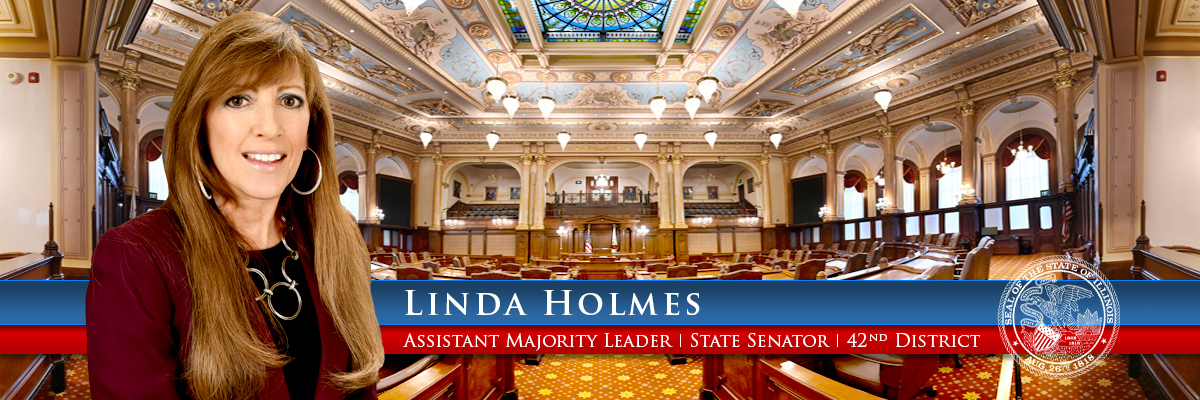 SPRINGFIELD – State Senator Linda Holmes’ (D-Aurora) legislation to address a number of issues regarding animal shelters and foster groups, licensing fees and feral cat programs, as well as a measure to ban cosmetics testing on animals, have been signed into law.
SPRINGFIELD – State Senator Linda Holmes’ (D-Aurora) legislation to address a number of issues regarding animal shelters and foster groups, licensing fees and feral cat programs, as well as a measure to ban cosmetics testing on animals, have been signed into law.
Senate Bill 61 increases licensing fees and fines under the Department of Agriculture for the first time since 1971. It also changes rules regarding adopted dogs and cats and the facilities that provide foster homes and transport pets for adoption.
“This group of animal welfare measures brings several rescue and shelter issues up to date for Illinois,” Holmes said. “When I worked as a volunteer at the Humane Society, I learned how many pets find their forever homes through these facilities and fostering arrangements. This legislation can serve to increase the potential for that to happen while providing the Department of Agriculture with more resources to oversee these programs and facilities.”
In addition to increasing license fees and administrative fines, Senate Bill 61 as amended does the following:
- Changes definitions of terms related to animal shelters, rescue and transport groups and their functions;
- Addresses licensed animal groups’ Trap, Neuter, Release/Return (TNR) programs for sterilized and microchipped feral cats;
- Clarifies the limits of two litters of animals under eight weeks old in foster homes; and
- Removes a permit fee of $25 for foster homes.
Senate Bill 61 includes input from the Illinois Department of Agriculture, Best Friends Animal Society, The Humane Society of the United States and the Illinois Animal Control Association. The bill takes effect immediately.
Senate Bill 241 amends the Food, Drug and Cosmetic Act to prohibit importation or sale of cosmetic products or ingredients that use animal testing after the effective date of the act. Modern testing alternatives are less expensive, faster and more predictive of human reactions than past practices of painful tests on animals to assess the safety of chemicals used in cosmetics.
This ban does not include cosmetic products or ingredients that have been tested on animals but are currently being sold before the implementation date.
“Consumers’ expectations are moving toward products that are not tested on animals, and big personal product brands are changing their practices,” Holmes said. “There are alternative testing methods that are good for business, safe for consumers, and certainly move us forward to a humane approach by eliminating the cruel practices of the past.”
Thirty countries have adopted cruelty-free cosmetics testing, and in September 2018, California passed a law prohibiting the importation and sale of new cosmetics that have been tested on animals. Major cosmetics producers are listening to consumers: In 2018, the world’s second-largest personal-care producer, Unilever, announced they will stop animal testing. Their popular beauty brands include Dove, Degree, and TRESemmé.
Senate Bill 241 takes effect Jan 1, 2020.
- 30 -




